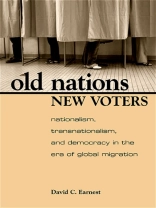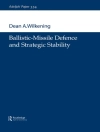Groundbreaking empirical study of voting by resident aliens in established democracies.
In this groundbreaking study, David C. Earnest analyzes why democracies give noncitizens the right to vote. Bringing together theoretical debates in international relations and comparative politics about globalization, sovereignty, nationalism, citizenship, and state building, he examines how twenty-five democracies are coping with growing populations of immigrants who increasingly demand political rights. Earnest employs statistical analyses, along with case studies, to uncover surprising facts-that national courts are not necessarily progressive and that the left-right differences of political parties disguise intriguing coalitions that may either welcome or marginalize immigrants. The author concludes that rather than undermining the rights of citizens, the enfranchisement of noncitizens reflects shared national myths. In this respect, when faced with growing migration, old nations welcome new voters in ways that reinforce the bond between the nation and state.
Зміст
List of Illustrations
Acknowledgments
1. The Democratic Dilemma of Migration
2. The Voting Rights of Resident Aliens: An Empirical Overview
A Typology of Resident Alien Suffrage
Voting Rights Granted by Localities
Discriminatory Regimes
Nondiscriminatory Regimes
Discrimination through Residency Qualifications
Alien Suffrage in National Constitutions
Resident Alien Voting Rights in International Law
Negative Cases: States That Have Rejected Alien Suffrage
Why Enfranchise? A Preview
Implications for the Research Design
3. Nationalism and Transnationalism: Hypotheses on the Political Incorporation of Resident Aliens
Nationalism and Transnationalism: An Overview
Hypothesized Causes of Political Incorporation
Conclusion: Convergence or Heterogeneity?
4. Study Population, Measures, and Estimation Strategy
Population of the Study
Dependent Variables: Voting Rights for Resident Aliens
Measures for the Independent Variables
Control Variables
Longitudinal Coverage
Model Specification and Methods of Estimation
Conclusion
5. Statistical Findings
The Ordered Probit Model
The Probit Model
Conclusion
6. Case Studies: Political Incorporation and Historical Institutionalism
The Netherlands
The Federal Republic of Germany
Belgium
Conclusion
7. Theoretical Implications
The Influence of History: Citizenship, Nationhood, and Rights
State Institutions and Voting Rights for Aliens
Systemic Factors: Traces of Transnationalism
Next Steps
8. Sovereignty and the Nation
Appendix A: Problems with Demographic Data on Resident Aliens
A Note about Sources for Demographic Data
Appendix B: Codebook
Dependent Variables: Measures and Sources
Identifiers, Independent and Control Variables
Appendix C: Descriptive Statistics and Correlation Matrix
Notes
Reference List
Index
Про автора
David C. Earnest is Associate Professor of Political Science and International Studies at Old Dominion University. He is the author of Old Nations, New Voters: Nationalism, Transnationalism, and Democracy in the Era of Global Migration, also published by SUNY Press, and the coauthor (with James N. Rosenau, Yale H. Ferguson, and Ole R. Holsti) of On the Cutting Edge of Globalization: An Inquiry into American Elites.












